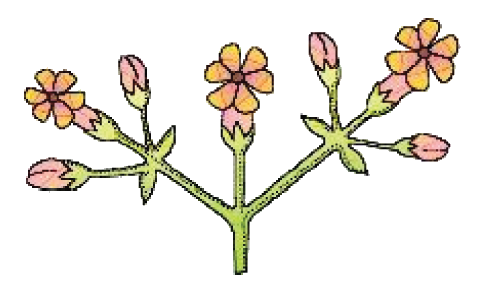Which type of isomerism is shown by 1,2 - dimethylcyclopropane ?
Geometrical isomerism
Optical isomerism
Position isomerism
Conformational isomerism
The correct Answer is:A
To determine the type of isomerism shown by 1,2-dimethylcyclopropane, we can follow these steps:
Step 1: Understand the Structure
1,2-Dimethylcyclopropane consists of a cyclopropane ring with two methyl (CH₃) groups attached to the first and second carbon atoms of the ring.
Step 2: Identify Possible Isomerisms
The types of isomerism we need to consider are:
- Geometrical isomerism
- Optical isomerism
- Positional isomerism
- Conformational isomerism
Step 3: Analyze Geometrical Isomerism
Geometrical isomerism (cis-trans isomerism) occurs when there are different spatial arrangements of groups around a double bond or a ring structure. In 1,2-dimethylcyclopropane:
- The two methyl groups can be positioned either on the same side of the ring (cis) or on opposite sides (trans).
Step 4: Draw the Isomers
1. Cis Isomer: Both methyl groups are on the same side of the cyclopropane ring.
2. Trans Isomer: One methyl group is above the plane of the ring, and the other is below the plane.
Step 5: Check for Optical Isomerism
Optical isomerism requires a chiral center, which is a carbon atom bonded to four different groups. In 1,2-dimethylcyclopropane, the presence of a plane of symmetry means that it does not have any chiral centers, and thus, it cannot exhibit optical isomerism.
Step 6: Check for Positional Isomerism
Positional isomerism occurs when the position of the functional group changes. In this case, the methyl groups are fixed at positions 1 and 2, so positional isomerism does not apply.
Step 7: Check for Conformational Isomerism
Conformational isomerism involves different arrangements of atoms that can be converted into one another by rotation around single bonds. However, due to the rigidity of the cyclopropane ring, conformational isomerism is not applicable here.
Conclusion
Based on the analysis:
- 1,2-dimethylcyclopropane exhibits geometrical isomerism due to the different spatial arrangements of the methyl groups (cis and trans forms).
Final Answer
The type of isomerism shown by 1,2-dimethylcyclopropane is geometrical isomerism.
---
1,2-Dimethylcyclopropane consists of a cyclopropane ring with two methyl (CH₃) groups attached to the first and second carbon atoms of the ring.
The types of isomerism we need to consider are:
- Geometrical isomerism
- Optical isomerism
- Positional isomerism
- Conformational isomerism
Geometrical isomerism (cis-trans isomerism) occurs when there are different spatial arrangements of groups around a double bond or a ring structure. In 1,2-dimethylcyclopropane:
- The two methyl groups can be positioned either on the same side of the ring (cis) or on opposite sides (trans).
1. Cis Isomer: Both methyl groups are on the same side of the cyclopropane ring.
2. Trans Isomer: One methyl group is above the plane of the ring, and the other is below the plane.
Optical isomerism requires a chiral center, which is a carbon atom bonded to four different groups. In 1,2-dimethylcyclopropane, the presence of a plane of symmetry means that it does not have any chiral centers, and thus, it cannot exhibit optical isomerism.
Positional isomerism occurs when the position of the functional group changes. In this case, the methyl groups are fixed at positions 1 and 2, so positional isomerism does not apply.
Conformational isomerism involves different arrangements of atoms that can be converted into one another by rotation around single bonds. However, due to the rigidity of the cyclopropane ring, conformational isomerism is not applicable here.
Based on the analysis:
- 1,2-dimethylcyclopropane exhibits geometrical isomerism due to the different spatial arrangements of the methyl groups (cis and trans forms).
The type of isomerism shown by 1,2-dimethylcyclopropane is geometrical isomerism.
Similar Questions
Knowledge Check
Cis-trans isomerism is shown by:
A B
B C
C D
D
Which type of isomerism is shown by 2, 3-Dichlorobutane ?
View SolutionGeometrical isomerism is shown by ?
View SolutionThe geometrical isomerism is shown by:
View SolutionWhat type of isomerism is shown by But-2-yne and But-1, 3-diene?
View SolutionWhat type of isomerism is shown by 1-butene and 2-butene?
View SolutionWhat type of isomerism is shown by isopentane and neopentane?
View SolutionWhich type of inflorescence is shown below?

View Solution